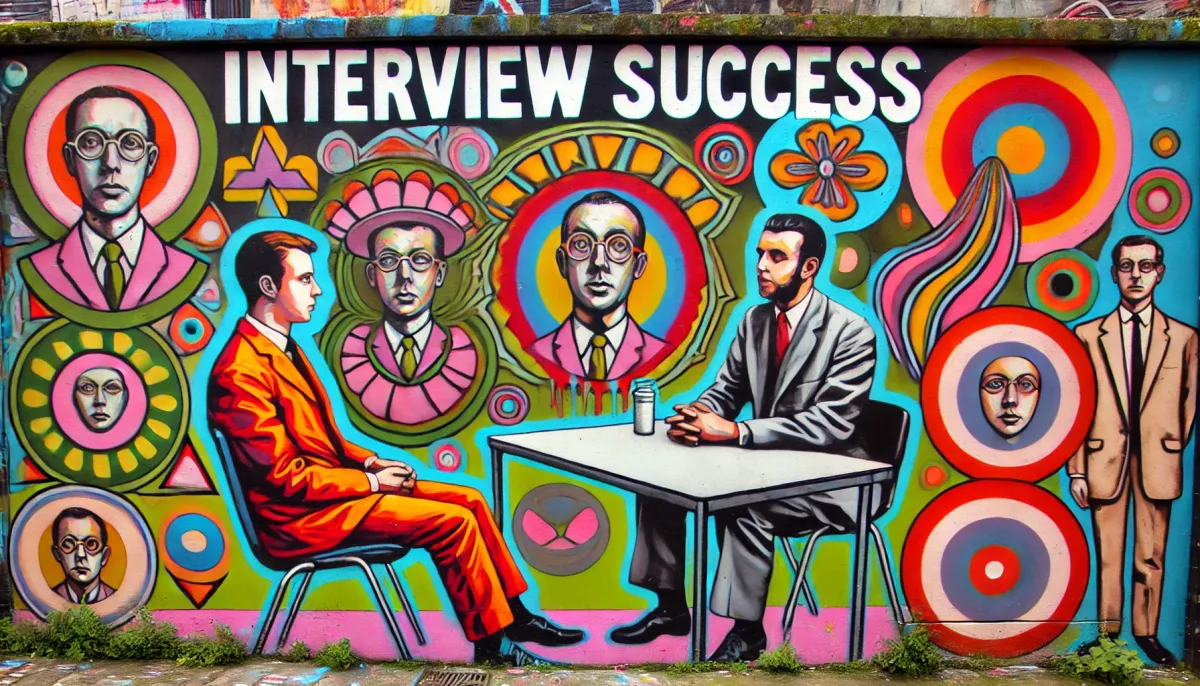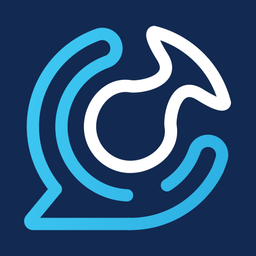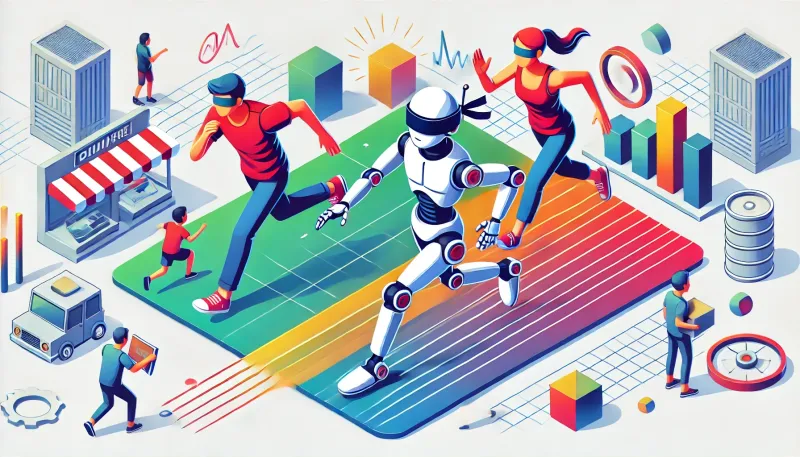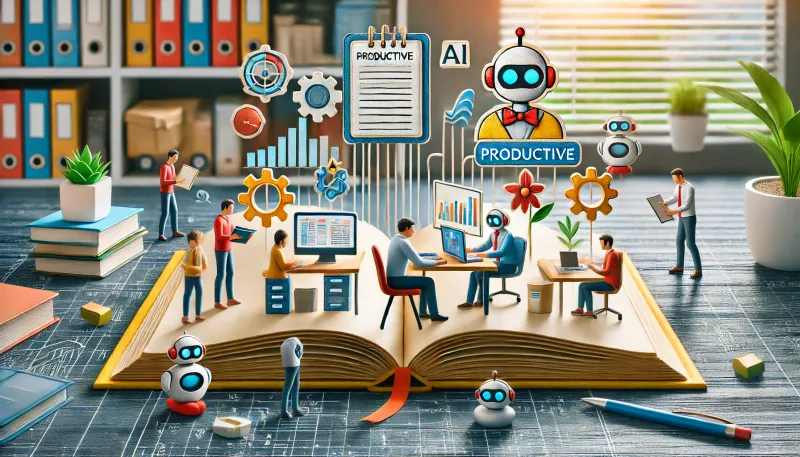With the increasing integration of AI across various industries, employers are now seeking graduates who are not only familiar with AI but can also leverage it to bring value to their organizations.
A recent survey highlighted that 83% of U.S. professionals believe students should be prepared to use AI upon entering the workforce (SHRM, 2024). This growing demand underscores the importance of AI proficiency for new entrants in the job market. In this article, we'll explore five actionable strategies that young graduates can use to improve their job prospects by acquiring and applying AI skills.
Understand the Demand for AI Skills
The demand for AI skills has skyrocketed in recent years, making it one of the most sought-after competencies in the job market. For young graduates, this presents both a challenge and an opportunity. On one hand, mastering AI can set them apart from the competition; on the other, it requires a commitment to continuous learning and adaptation.

According to a recent report, 70% of business leaders indicated that they would prefer to hire a less experienced candidate with AI skills over a more seasoned professional lacking such expertise (CNBC, 2024). This statistic alone highlights the competitive advantage that AI knowledge can confer. For young professionals, understanding this demand and positioning themselves accordingly can significantly enhance their employability.
Invest in Learning AI Skills
Given the high demand for AI proficiency, the next logical step for young graduates is to actively invest in learning these skills. Fortunately, there are numerous resources available that make acquiring AI knowledge more accessible than ever.
For instance, many prestigious institutions like Harvard University and the University of Pennsylvania, as well as tech giants like IBM, offer free online courses tailored to beginners and professionals alike (CNBC, 2024). These courses cover a range of AI-related topics, from basic machine learning principles to advanced AI applications in various industries. By enrolling in these programs, graduates can build a solid foundation in AI, making them more attractive candidates to potential employers.
In addition to online courses, educational institutions are increasingly integrating AI into their curricula. Many colleges and universities now offer undergraduate and master’s degrees specifically focused on AI, preparing students for the demands of the modern workforce (SHRM, 2024). These programs provide not only theoretical knowledge but also practical experience through projects, internships, and collaborations with industry partners. For graduates who are serious about pursuing a career in AI, formal education combined with continuous self-learning is a powerful strategy.
Use AI for Personalized Career Development
One of the most valuable ways young professionals can leverage AI is by using it to guide their career development. AI tools offer personalized career advice by analyzing vast amounts of data, including job market trends, skill demands, and even individual career paths. These tools can provide graduates with tailored recommendations on which skills to develop, potential career paths to explore, and even specific job opportunities that align with their interests and strengths. This data-driven approach helps young professionals make informed decisions, reducing the guesswork often associated with early career planning.

Leaders in various industries are recognizing the potential of early-career talent with AI skills, often delegating greater responsibilities to these individuals. This trend highlights how AI proficiency can accelerate career advancement by opening doors to roles that require strategic thinking and innovation (Forbes, 2023). Graduates who harness AI not only gain a competitive edge in job applications but also position themselves for faster career growth and more meaningful opportunities.
Complement AI Skills with Strong Soft Skills
While technical skills in AI are crucial, they are most effective when complemented by strong soft skills. In an AI-driven world, the ability to collaborate, communicate effectively, and adapt to new situations is invaluable.
Employers are increasingly looking for candidates who can not only work with AI but also bring human qualities to their roles, such as empathy, creativity, and problem-solving. For young professionals, it’s essential to demonstrate a balance of both AI and soft skills on their resumes and during interviews.

For example, while AI can automate data analysis, it’s the human ability to interpret that data, understand its implications, and communicate those insights effectively that truly adds value. Research has shown that these soft skills are critical for thriving in any field, particularly as AI continues to transform the workplace (Deloitte, 2023). By focusing on developing these complementary skills, graduates can ensure they are well-rounded candidates who can excel in diverse work environments.
Embrace Adaptability and Lifelong Learning
In a rapidly changing job market, adaptability and a commitment to lifelong learning are essential for long-term success. As AI technologies continue to evolve, the skills required to stay relevant in the workforce will also shift. To remain competitive, young professionals must adopt a mindset of continuous learning, constantly updating their knowledge and skills to keep pace with technological advancements.
"AI-powered mock interview tools analyze responses, provide feedback on areas such as communication skills, body language, and content, and even predict potential interview questions based on the job description and industry standards" (Harvard Business Review, 2023).
One powerful way AI can support lifelong learning and adaptability is by providing tools for personalized learning and skill development. AI-driven learning platforms can recommend courses, track progress, and even adjust learning paths based on individual performance and evolving industry needs (Pew Research Center, 2017). This ensures that professionals remain up-to-date with the latest trends and technologies, helping them stay ahead in their careers.

If you're curious about setting up mock interviews
Additionally, AI can be used to simulate job interviews, allowing young professionals to practice and refine their interview skills. AI-powered mock interview tools analyze responses, provide feedback on areas such as communication skills, body language, and content, and even predict potential interview questions based on the job description and industry standards. By using these tools, graduates can gain confidence and improve their performance in real interview scenarios, making them better prepared for the job market (Harvard Business Review, 2023).
In conclusion, embracing AI tools for continuous learning and skill development, combined with mock interview practices, prepares young professionals not just for their first job, but for ongoing success throughout their careers. These tools empower graduates to adapt to new challenges and excel in an ever-changing professional landscape.
Before you go
In an increasingly AI-driven job market, young professionals who embrace AI skills and tools can significantly enhance their employability. By understanding the high demand for AI competencies, investing in accessible learning resources, and leveraging AI for personalized career development, graduates can position themselves as attractive candidates to employers. Additionally, complementing AI expertise with strong soft skills and utilizing AI-powered mock interviews for practice ensures a well-rounded preparation for entering the workforce.
The journey doesn't stop at securing the first job; adaptability and a commitment to lifelong learning are crucial for sustained career growth. AI can be a constant companion in this journey, offering ongoing learning opportunities and helping professionals stay ahead of industry trends. By integrating these strategies, young graduates can navigate the complexities of the job market with confidence, securing not just a job, but a promising career trajectory.
Sources
- SHRM. (2024). Employers Want New Grads with AI Experience & Knowledge. Retrieved from https://www.shrm.org/topics-tools/news/technology/employers-want-new-grads-with-ai-experience--knowledge
- CNBC. (2024, June 18). AI skills can help you land a job or promotion faster, says new research. Retrieved from https://www.cnbc.com/2024/06/18/ai-skills-can-help-you-land-a-job-or-promotion-faster-says-new-research-.html
- Forbes. (2023, June 21). How Recent Graduates Should Navigate the Age of AI. Retrieved from https://www.forbes.com/sites/tomchavez/2023/06/21/how-recent-graduates-should-navigate-the-age-of-ai/
- Deloitte Insights. (2023). Talent and Workforce Effects in the Age of AI. Retrieved from https://www2.deloitte.com/content/dam/insights/us/articles/6546_talent-and-workforce-effects-in-the-age-of-ai/DI_Talent-and-workforce-effects-in-the-age-of-AI.pdf
- Pew Research Center. (2017, May 3). The Future of Jobs and Jobs Training. Retrieved from https://www.pewresearch.org/internet/2017/05/03/the-future-of-jobs-and-jobs-training/
- Harvard Business Review. (2023, September). Reskilling in the Age of AI. Retrieved from https://hbr.org/2023/09/reskilling-in-the-age-of-ai





